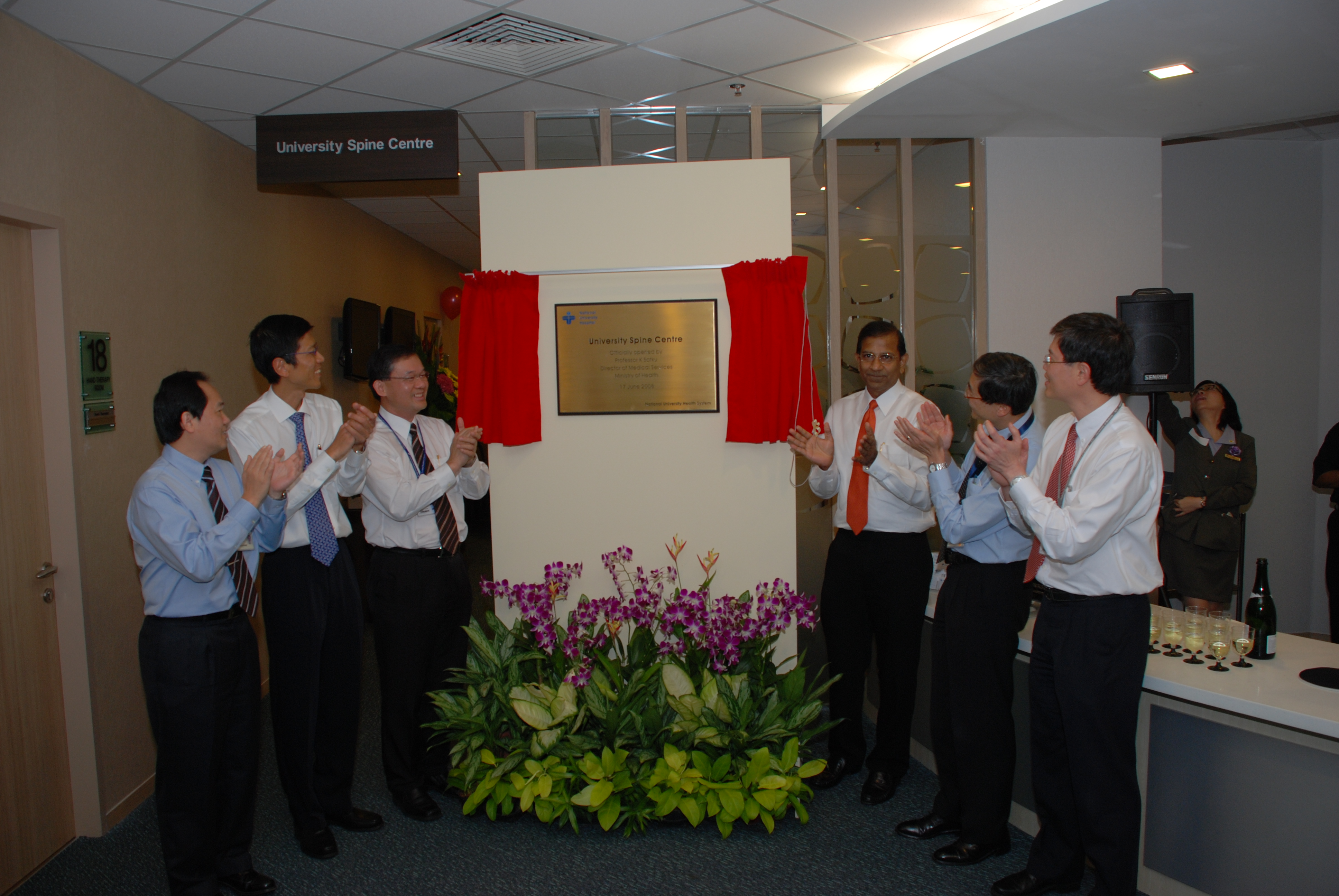The Department of Orthopaedic Surgery established its spine sub-specialty in 1985, assembling a team of spine specialists dedicated to spine practice in Singapore. The University Spine Centre, staffed by eight full-time spine specialists, provides comprehensive tertiary spine care and services.

Opening of University Spine Centre on 17 June 2008 by Prof K Satku
(then-Director of Medical Services, Ministry of Health Singapore)
The University Spine Centre provides patients a one-stop service platform with quality clinical facilities and a patient-centric, integrated process flow for addressing various spinal problems. This approach aligns with the National University Health System's (NUHS) strategic goals of expanding clinical facilities and promoting the collection of clinical outcomes to enhance patient value.
Regularly conducting courses, our centre is a recognised regional centre for training in thoracoscopic spinal surgery, spinal deformity surgery, cervical spine surgery, vertebroplasty and artificial disc replacement.
Surgical procedures at our centre are organised into degenerative conditions of the cervical (neck) and lumbar (back) spine, paediatric (child) and adult spinal deformities or scoliosis, spinal trauma, spinal infections and spinal tumours.
In collaboration with the National Scoliosis Screening Programme, our centre regularly performs thoracoscopic (minimally invasive) scoliosis operations, in addition to conventional scoliosis surgeries. Embracing modern treatment trends, we have been performing artificial disc replacement of the lumbar spine and cervical spine since 2002 and 2005, respectively. In addition, routine procedures include minimally invasive spine surgeries (e.g., endoscopic discectomy and minimally invasive lumbar fusion) and dynamic stabilisation (non-fusion) surgeries.
To optimise treatment outcomes, a multi-disciplinary team, including anaesthetists, rehabilitation physicians, paediatricians, medical and radiation oncologists, orthopaedic surgical nurse practitioners, neurophysiologists (for spinal cord monitoring), physiotherapists, occupational therapists, speech therapists, and social workers, is actively involved in patient care.
Beyond spinal surgery, the division manages many spinal conditions through non-surgical means, and collaboration with physiotherapists, acupuncturists and pain management physicians. Minimally invasive injection procedures, such as vertebroplasty and nerve root injections, are also performed regularly for patients who are not suitable candidates for open spinal surgery and fail to respond to non-surgical treatments.
















